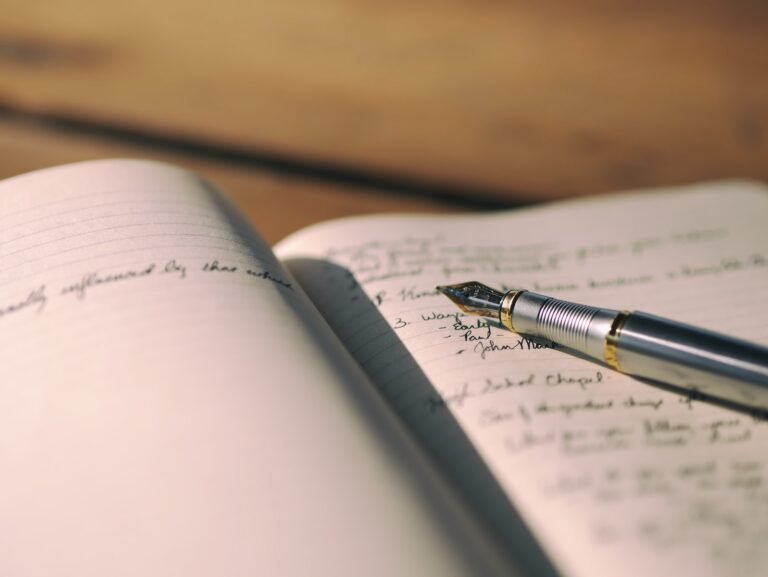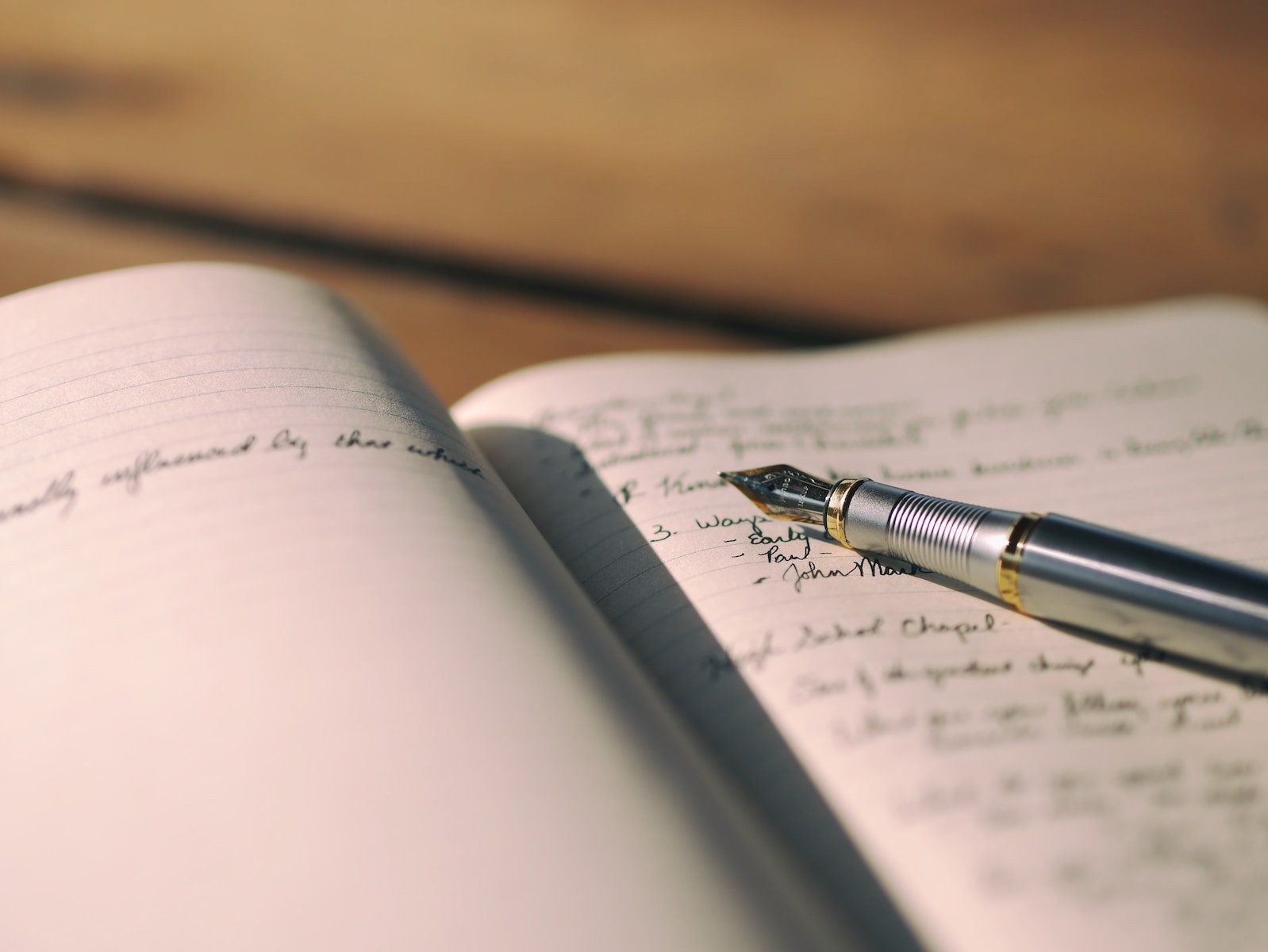Words that heal: The science of cathartic journaling
Journaling has long been known as a powerful tool for self-reflection and self-expression. It is a form of expressive writing that can have profound effects on our mental and emotional well-being. The act of putting pen to paper and articulating our thoughts and feelings can help us process our experiences, release negative emotions, and gain a deeper understanding of ourselves.
What is journaling and how does it promote mental health?
The basics of journaling
Journaling, also known as writing therapy, is the practice of keeping a personal diary or journal. It involves writing about our thoughts, feelings, and experiences in a private and non-judgmental way. Journaling can take many forms, from daily entries to sporadic reflections, and can be done using pen and paper or through digital platforms.
Understanding the benefits of journaling
There are numerous health benefits associated with journaling. Research suggests that writing about our thoughts and feelings can help reduce mental distress, improve our psychological well-being, and even strengthen our immune system. It can provide a sense of relief, clarity, and perspective, allowing us to gain insight into our own patterns of thinking and behavior.
How journaling can improve your mental health
Journaling can help us manage stress, cope with traumatic experiences, and process difficult emotions. It provides a safe space for emotional expression and can serve as a tool for self-care. By writing about our experiences, we can release negative thoughts and emotions, gain a sense of control, and foster a sense of empowerment.
How to start journaling: Tips and prompts for beginners
Getting started with journaling
If you’re new to journaling, getting started can be as simple as finding a quiet space, grabbing a notebook and pen, and allowing yourself the time and space to write. There are no rules or expectations when it comes to journaling, so don’t be afraid to just let your thoughts flow freely.
Exploring journaling prompts
If you’re looking for some inspiration or guidance, journaling prompts can be a helpful tool. Prompts can range from specific questions about your day or emotions, to more open-ended prompts that encourage self-reflection and exploration. Experiment with different prompts to find what resonates with you.
Creating a routine for journal writing
To make journaling a habit, it can be helpful to establish a routine. Set aside a specific time each day or week to sit down and write. Choose a quiet and comfortable space where you feel at ease and free from distractions. By incorporating journaling into your daily routine, you can make it a regular practice and reap the benefits over time.
Positive and negative emotions: Harnessing the power of journaling
Processing negative emotions through journaling
One of the key benefits of journaling is its ability to help us process and release negative emotions. By acknowledging and writing about our feelings, we can gain insight into their origins, patterns, and triggers. This self-reflection can lead to better emotional regulation and an increased ability to cope with difficult situations.
Cultivating positive emotions with journaling
Journaling is not only useful for processing negative emotions, but it can also be a powerful tool for cultivating positive emotions. By writing about moments of gratitude, joy, and appreciation, we can enhance our overall mental well-being. Regularly focusing on the positive aspects of our lives can help shift our perspective and improve our mood.
Exploring the duality of emotions through journal writing
Through journaling, we can explore the duality of emotions and the complexities of our inner world. By acknowledging and accepting both positive and negative emotions, we can gain a greater understanding of ourselves and our experiences. This self-exploration can lead to personal growth, resilience, and a deeper sense of self-awareness.
The therapeutic effects of journaling on physical and emotional health
How journaling can support physical health
Research has shown that journaling can have beneficial effects on our physical health as well. Studies suggest that expressive writing may boost immune function, reduce blood pressure, and even improve lung and liver function. The act of writing about stressful events or traumatic experiences can help us process and integrate difficult emotions, leading to improved overall well-being.
Journaling as a therapeutic tool for emotional health
Journaling has long been recognized as a therapeutic tool for emotional health. It can be particularly helpful for individuals with mental health conditions such as anxiety, depression, and post-traumatic stress disorder (PTSD). Writing about our thoughts and emotions can provide a sense of release, validation, and understanding, and can complement other forms of therapy or treatment.
The role of journaling in psychotherapy
Many mental health professionals incorporate journaling into their therapeutic practices. The act of writing can deepen the therapeutic process, enhance self-awareness, and provide a tangible record of progress and insights. Journaling can also serve as a tool for reflection, enabling individuals to identify patterns, triggers, and areas of growth.
Journaling prompts for healing and self-reflection
Using prompts to delve into thoughts and feelings
If you’re looking to delve deeper into your thoughts and feelings, specific journaling prompts can be helpful. Prompts like “How am I feeling today?” or “What are my goals and aspirations?” can invite self-reflection and introspection.
Journaling prompts for releasing negative emotions
When it comes to releasing negative emotions, prompts such as “What is causing me stress right now?” or “What is one thing I can let go of today?” can help shed light on sources of distress and guide the process of letting go.
Gratitude journaling: Enhancing mental well-being
Gratitude journaling is a widely recognized and effective practice for enhancing mental well-being. By writing down things we are grateful for, we shift our focus towards the positive aspects of our lives. Prompts like “What am I grateful for today?” or “Who has made a positive impact on my life recently?” can guide the practice of gratitude journaling.
Q: What is cathartic journaling?
A: Cathartic journaling is a form of journaling that is focused on expressing and releasing negative emotions, thoughts, and experiences. It is a therapeutic practice that allows individuals to process their feelings and thoughts through writing.
Q: What are the benefits of journaling?
A: Journaling has numerous benefits for both mental and psychological health. It can help improve emotional well-being, reduce stress and anxiety, enhance self-awareness, and promote overall relaxation and mindfulness.
Q: How can journaling help you heal?
A: Journaling allows you to explore and reflect on your emotions and experiences in a safe and non-judgmental space. By writing down your thoughts and feelings, you can gain a better understanding of yourself, process difficult emotions, and work towards healing.
Q: Can journaling improve your health?
A: Yes, there is evidence that writing can have positive health effects. Studies have shown that regular journaling can improve immune function, decrease blood pressure, and promote better sleep. It can also be a beneficial tool for managing chronic illnesses and trauma-related symptoms.
Q: What is the difference between negative and positive journaling?
A: Negative journaling involves writing about challenging or difficult experiences, emotions, and thoughts. Positive journaling, on the other hand, focuses on gratitude, affirmations, and positive experiences. Both forms of journaling have their own unique benefits and can be integrated into a journaling practice.
Q: How do I start a journaling practice?
A: Starting a journaling practice is simple. All you need is a pen and paper or a digital journaling tool. Set aside some dedicated time each day or week to write. You can begin by writing freely about anything that comes to mind or use specific journal prompts to guide your entries.
Q: What are some journal prompts to get started?
A: Here are a few journal prompts to help you get started: – Write down three things you’re grateful for today. – Describe a recent challenge you faced and how you overcame it. – Reflect on a happy memory from your childhood. – Write about a goal or aspiration you have and how you plan to achieve it.
Q: Can journaling be used as a therapeutic tool?
A: Absolutely! Journaling has been used therapeutically for many years. It can be a valuable tool for self-reflection, emotional processing, and working through difficult experiences. Many therapists also incorporate journaling into their treatment plans for clients.
Q: How often should I journal?
A: The frequency of journaling is entirely up to you. Some people prefer to write every day as a daily practice, while others may choose to journal a few times a week or as needed. The important thing is to create a routine that works for you and allows you to consistently engage in the practice.
Q: Can anyone benefit from journaling?
A: Yes, anyone can benefit from journaling. It is a versatile and adaptable practice that can be tailored to meet individual needs and preferences. Whether you’re seeking self-reflection, emotional catharsis, personal growth, or simply a creative outlet, journaling can be a valuable tool.












